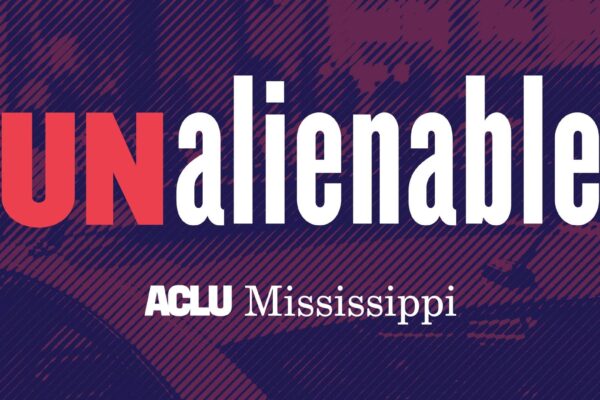Unalienable: Access to Sensitive Locations
Published in 2011 and recently reaffirmed by the Biden administration, the Sensitive Locations Policy governing Immigrations and Customs Enforcement (ICE) limits the agency from conducting enforcement actions in “sensitive locations,” including schools, places of worship, public demonstrations, and hospitals, unless “exigent circumstances exist,” “prior approval is obtained,” or “other law enforcement actions have led officers to a sensitive location.” The protection of sensitive locations from immigration enforcement is not only important to the livelihoods of immigrant communities, but also fundamental to this country’s aspiration to be a refuge for those seeking a better life.
Notwithstanding these policies and principles, there is a documented history of immigration enforcement breaching its promise to avoid sensitive locations. Examples include six men detained in Virginia as they were leaving a church homeless shelter, a Texas woman with a brain tumor who was removed from a hospital, and a Los Angeles father who was arrested after dropping his daughter off at school. This pattern is only worsened with the inclusion of local law enforcement. For example, after entering into 287(g) agreements, police officers in North Carolina were recorded investigating health clinics in search of undocumented patients.
This policy brief highlights several obstacles that prevent immigrants in Mississippi from accessing sensitive locations. While the brief focuses on medical facilities, these are far from the only protected sites that remain inaccessible for many community members. After addressing some of these cases, the brief offers recommendations that can be implemented to ensure that the reality on the ground more closely aligns with immigration enforcement policies and values.
OBSTACLES TO MEDICAL CARE
Hispanic and Latinx communities have higher rates of COVID-19 cases, hospitalizations, and deaths than almost every other ethnic group. This reality corresponds to a systemic lack of access to medical care that arises from a number of sources, including:
- Fear and Distrust: Many undocumented individuals ultimately avoid medical services for fear of their immigration status being questioned and shared with officials who might target them for detention, deportation, or discriminatory abuse. This fear has been enflamed by years of aggressive immigration enforcement and some politicians’ anti-immigrant rhetoric.
- Linguistic and Cultural Barriers: There is a palpable lack of multilingual and immigrant representation amongst Mississippi’s healthcare workers, which correlates with experiences of dismissal, misdiagnosis, or other forms of mistreatment and further enforces a community-wide trauma that isolates immigrants from medical facilities.
OTHER PROTECTED SITES
Medical sites are not the only sensitive locations at which aggressive immigration enforcement interferes with immigrants’ lives:
- Community members recall a recent period of time during which “Hispanics were terrified of being in Pearl” and other municipalities due to a fear of ICE or DHS enforcement, which was particularly persistent outside of local churches. “A lot of people would go to church and, as soon as they left church, they’d be stopped by the police, be detained by ICE, and then the next thing you know, they’re deported back to their country,” one individual remembers.
- Fear of immigration enforcement has taken a toll on both immigrant and US citizen children across many aspects of their lives, including at school. For example, some students have reported exhaustion and difficulty concentrating since taking on afterschool employment to make up for the household income lost to parental deportation, and from the toxic stress associated with status-related anxieties.
RECOMMENDATIONS
For State and Local Bodies
- Promote diversity and inclusion across medical sites, including private clinics and rural facilities
- Create safe and reliable systems for reporting discrimination by healthcare providers
For Biden Administration and Federal Agencies
- End all at-large immigration enforcement operations
- Create a safe and reliable system for reporting breaches of immigration enforcement agencies’ sensitive locations policies
For Local, State, and Federal Bodies
- Take specific actions to target undocumented immigrants in public health efforts; for example, by providing information in multiple languages


